I spent Friday morning practicing and working on my presentation, but managed to make it over to the conference just before lunch.
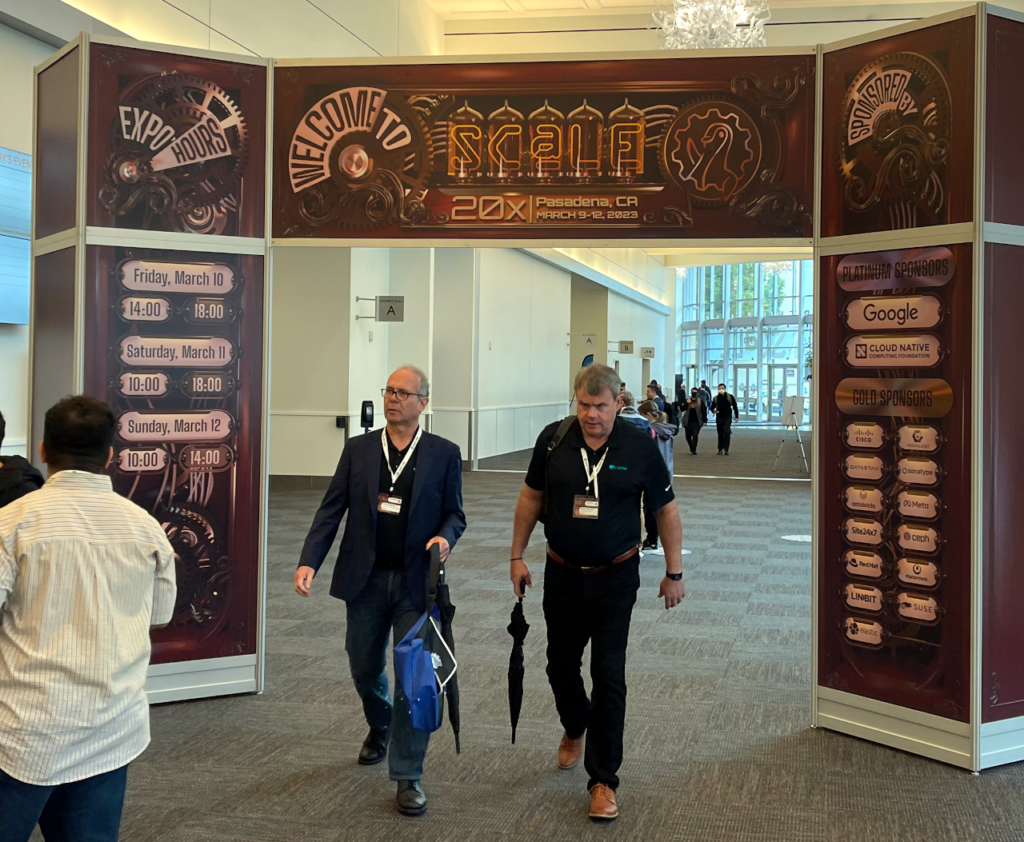
I was really impressed with the “steampunk” graphics for this year’s show. They were cool.
Check-in, as usual with SCaLE, was a breeze. They have automated most of it. You walk up to a bank of computers, choose one and then enter in your registration information and your badge gets printed. I also think you could purchase a registration through the system as well.
Then you walk down to a table to get your conference bag, badge holder and lanyard.
After wandering around for a bit I went down the street to meet up with Aaron Leung. While I love many things about being able to work remotely, I do miss meeting people in person and especially people I work with at AWS. Aaron happens to live in LA and he was kind enough to come out to see me and we had a great lunch.
Having SCaLE back in Pasadena was awesome. Not only is the convention center nice, it is really close to a ton of restaurants so you have a bunch of options for dining. The only downside was that it was raining (you can see the folks with the umbrellas above). When I had to go outside it wasn’t bad – more of a mist – and it was strange to have rain in LA. It did make the hills very green, however, and quite the departure from the usual tan.
After our long lunch I worked some more on my presentation, and then headed back over to the conference. The Expo floor was open so I spent some time wandering around and looking at the booths.
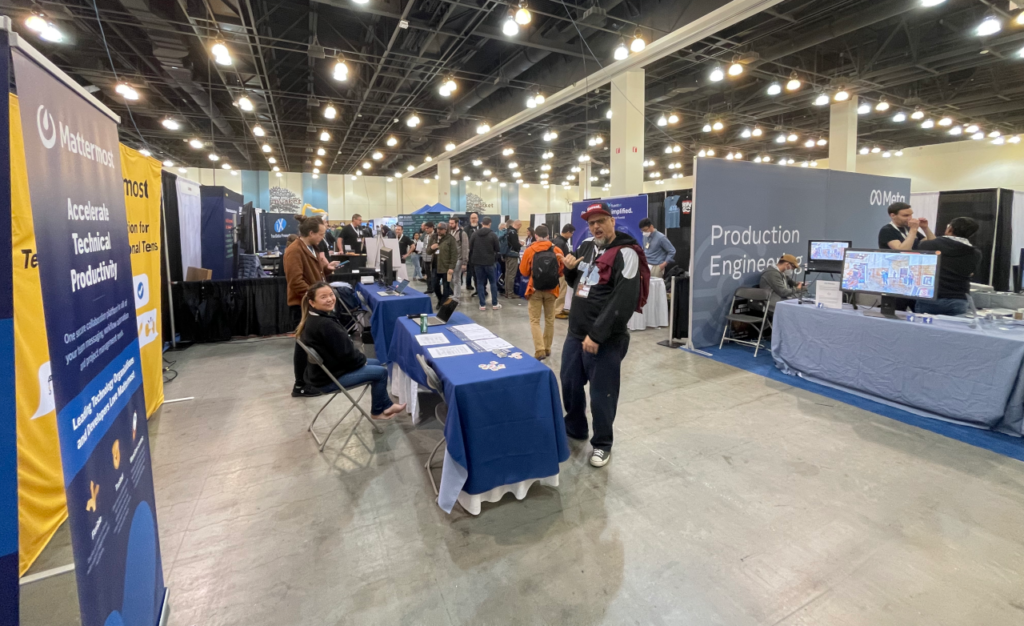
Toward the end of the afternoon I went to see Bryan Cantrill speak on his new company, Oxide Computer.
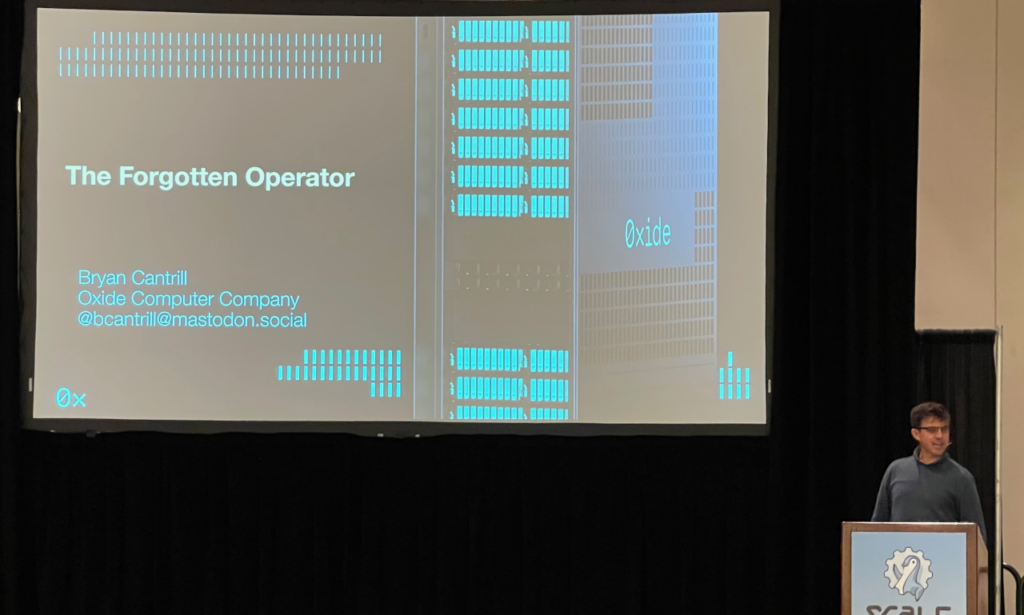
The “forgotten” operator in the title refers to people tasked with running on-premises data centers. Now I’ve been in a number of data centers and they were all has he described: racks upon racks of 1U and 2U servers arranged in rows, some with “hot” aisles and “cold” aisle and each server with a pair of power supplies and lots and lots of cabling.
I have never been inside a Google or Amazon data center, but I’ve always imagined it to be more along the lines of the one Javier Bardem’s character set up in Skyfall.
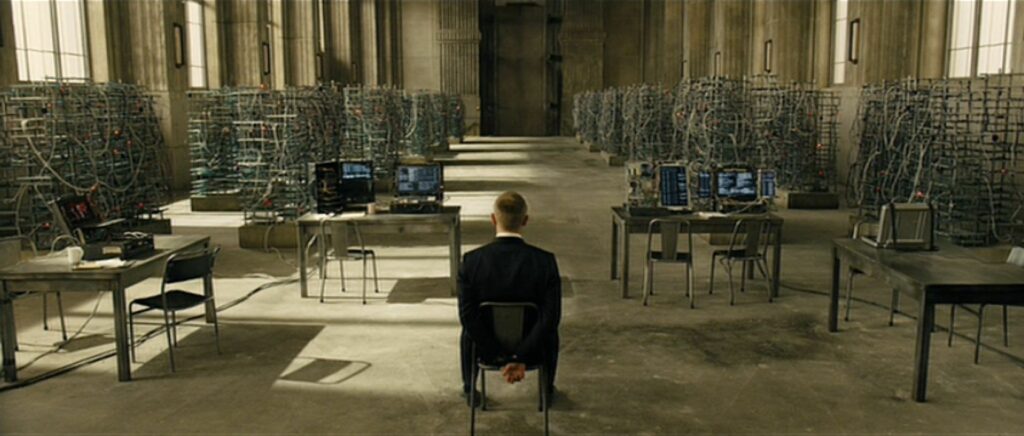
In these days of the “cloud”, compute is divorced from storage and so a lot of the hardware in an old school 1U rack mount machine is unnecessary. Plus there is the antiquated idea of having separate power supplies for each board in the rack. Computers run on DC power, so why not just supply it directly from a central source vs. individually? I started my professional career working for phone companies and everything was DC (many central offices had a huge room in the basement with chemical batteries – and, yes, it did smell).
When I started my own company 20+ years ago I had two Supermicro 1U machines and when I turned them on they were each louder than a vacuum cleaner. Bryan told us that their racks are whisper-quiet (well, once they are powered on and the fans on the rectifiers spool down).
I’m oversimplifying, but that is the basic idea behind Oxide. They want to supply cloud-grade computing gear to enterprises and break the old paradigm of what a data center should look like. Users can still leverage cloud technologies like Kubernetes but on their own gear. It still doesn’t solve the need to have people who understand the technology on staff, but it was exciting in any case.
Friday evening featured a series of lightning talks called “Upscale”. It was hosted by Jason Hibbets and Hannah Anderson and sponsored by opensource.com.
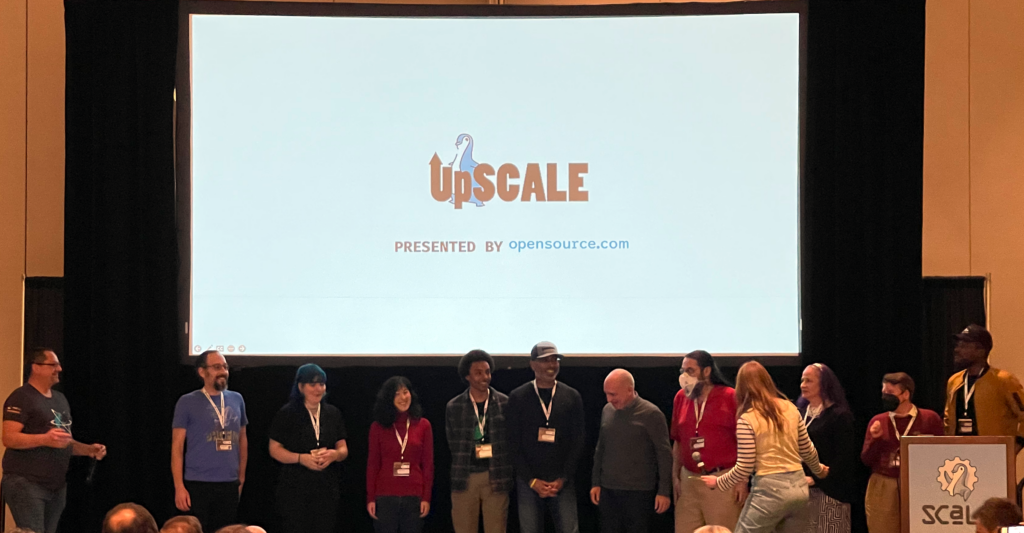
Lightning talks are 5 minute presentations consisting of a set number of slides that advance automatically. I’ve never given one, and once when I mentioned that I thought it was cool it was pointed out that I can’t introduce myself in five minutes, much less give a talk. (grin)
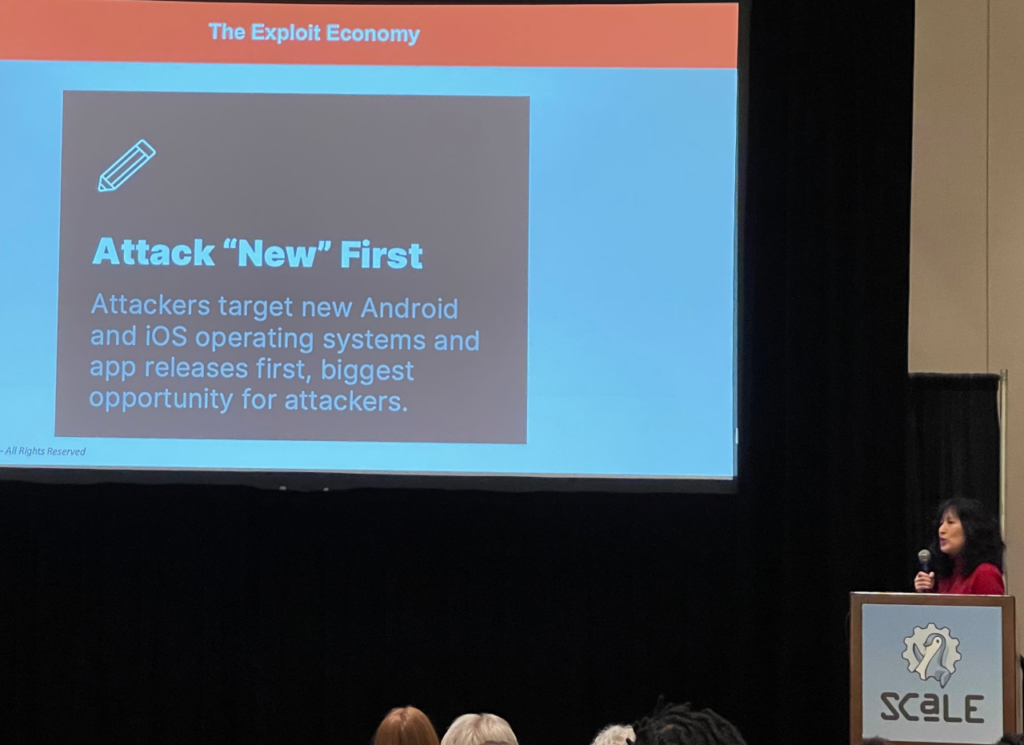
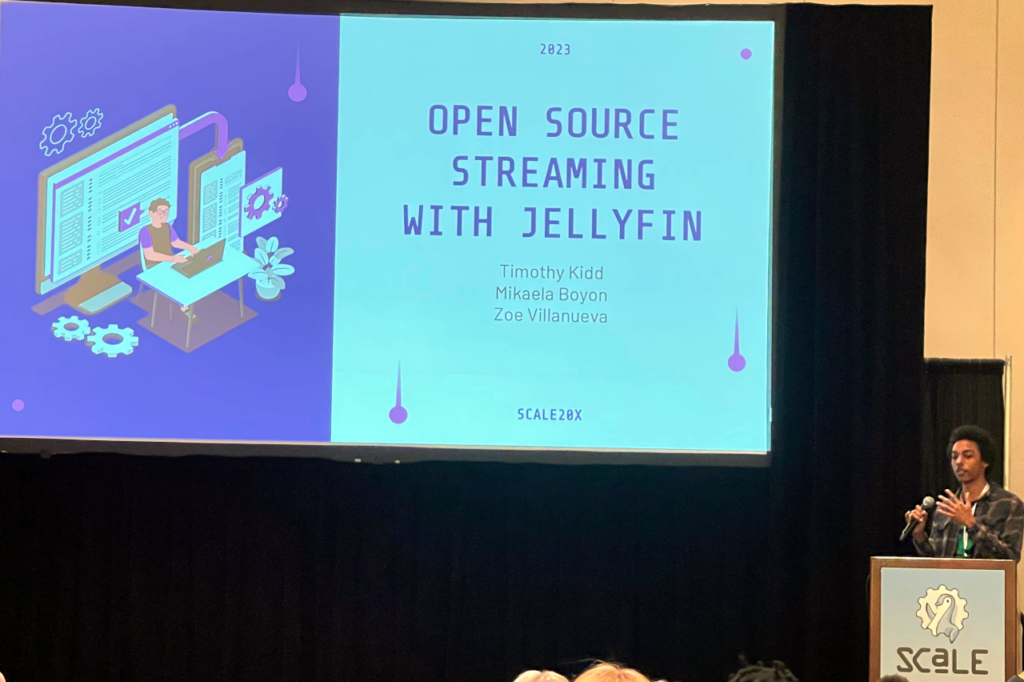
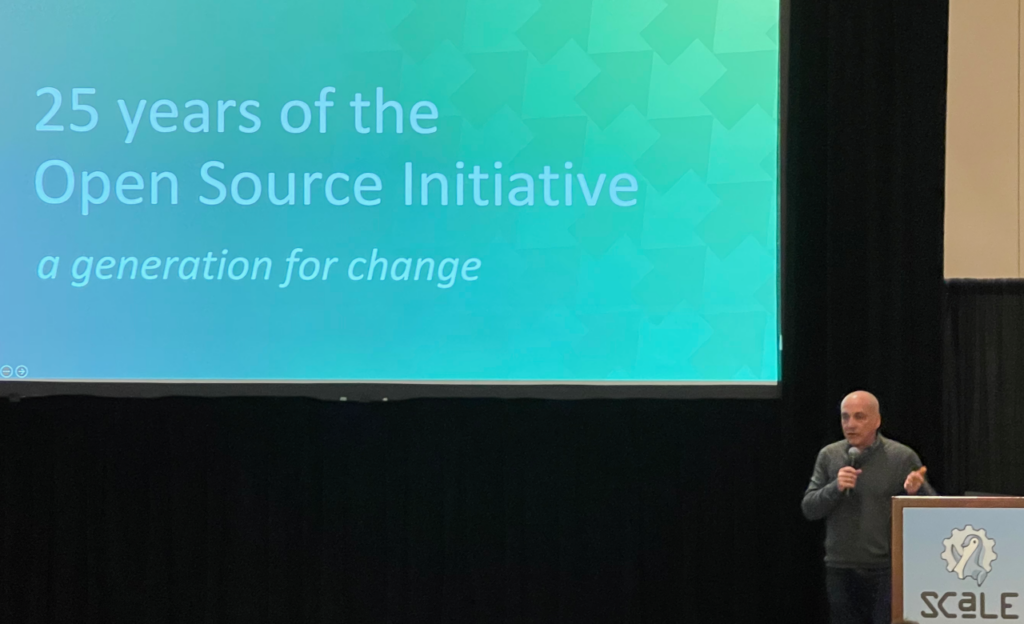
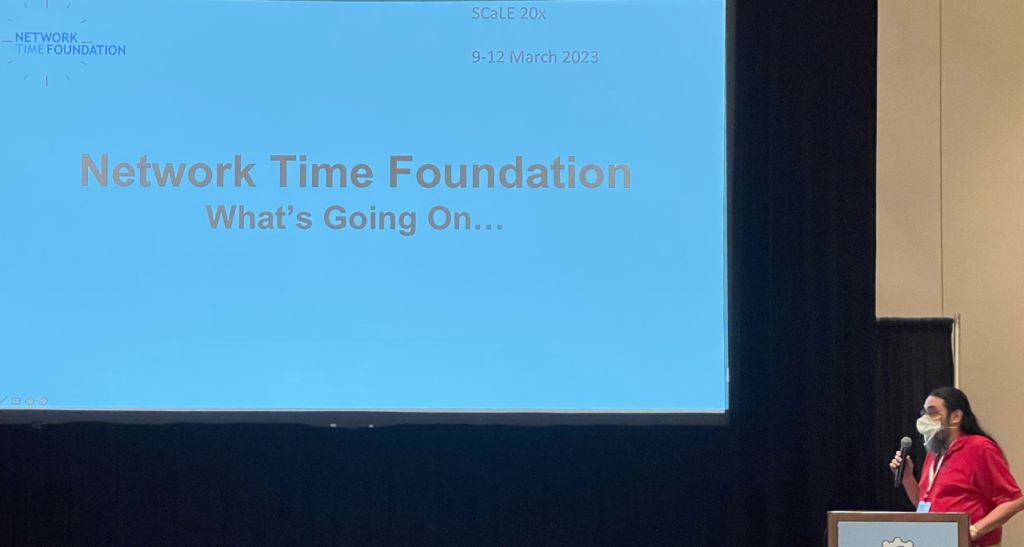
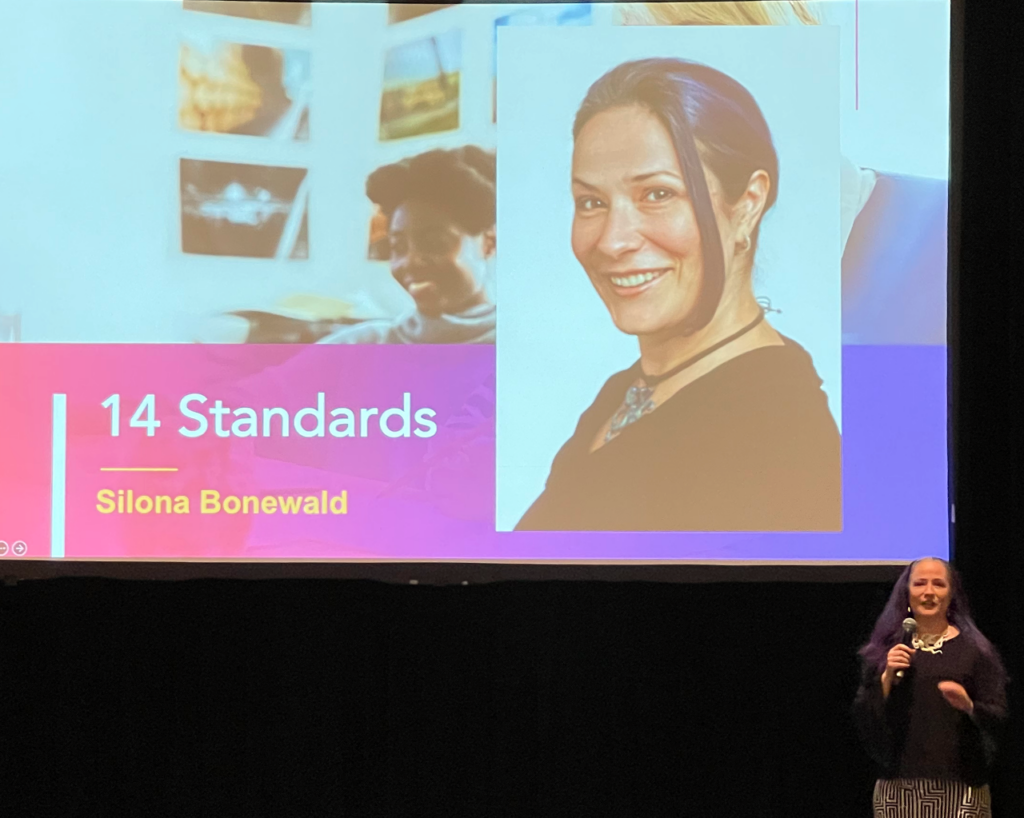
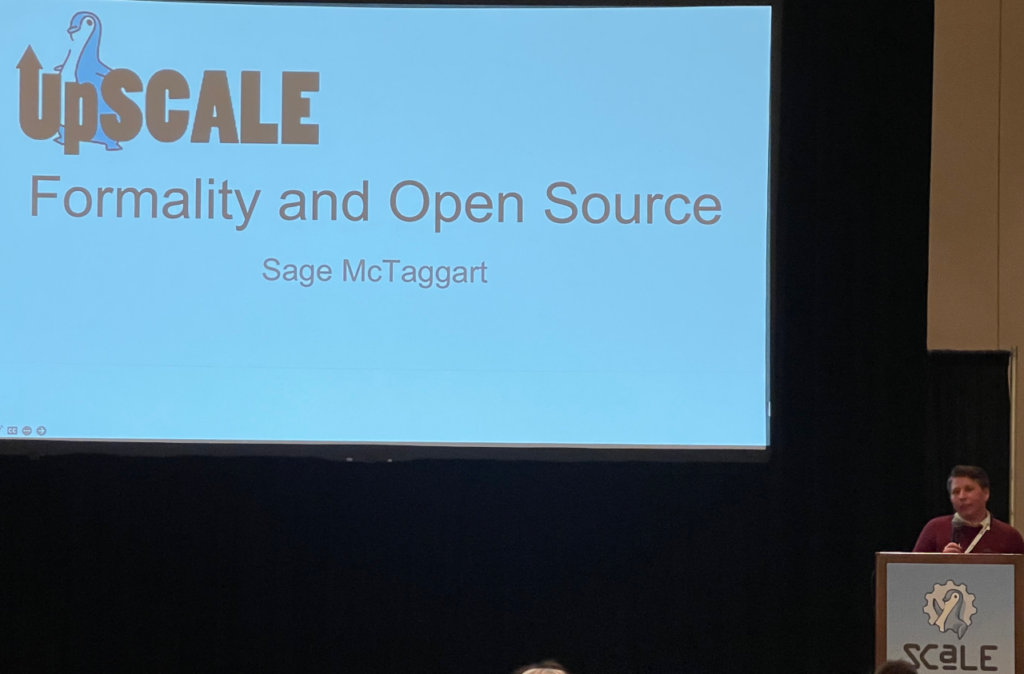
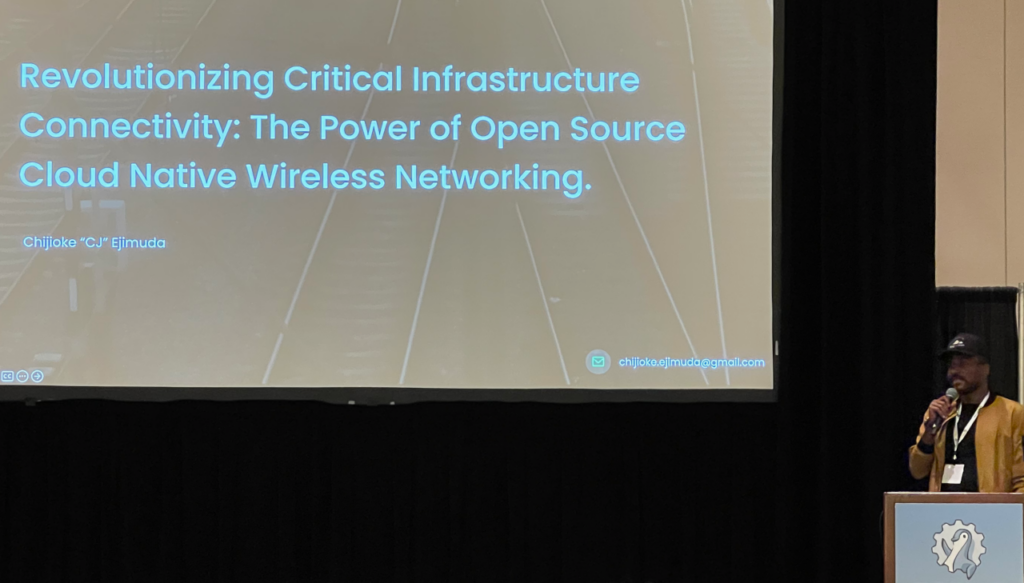
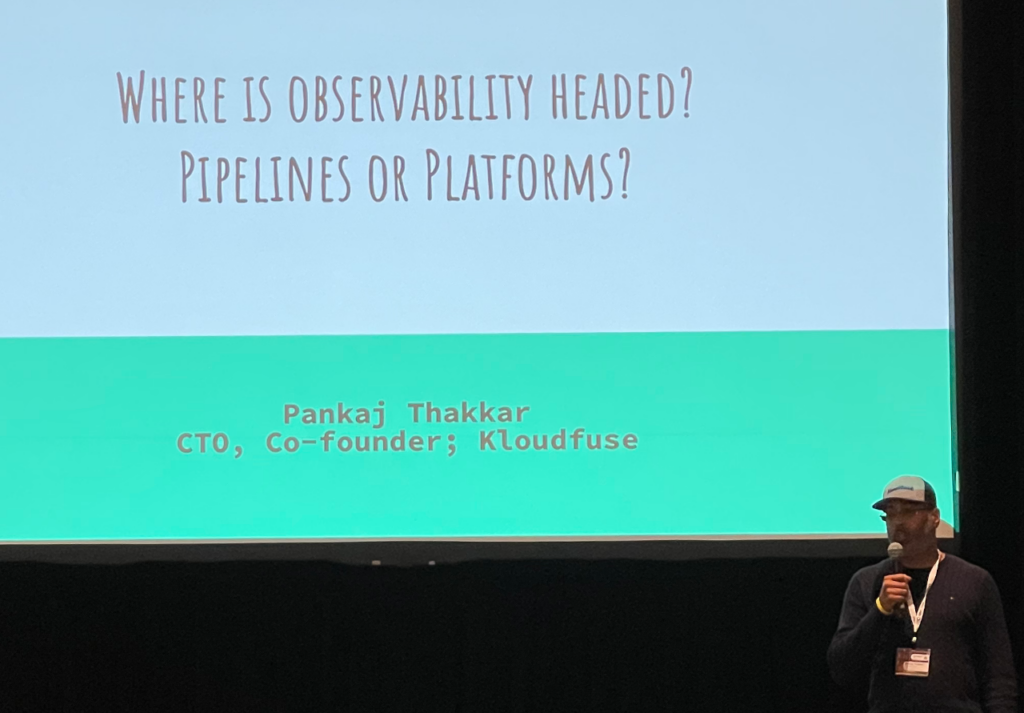
I was impressed with the presentations. One that stuck out was the fact that the term “open source” as formalized by the Open Source Initiative is now 25 years old. Wow.
After Upscale a group of us went down the street for dinner and drinks. I can’t emphasize enough about how much I miss the face-to-face aspect of in-person conferences and I hope we can continue to have them safely.